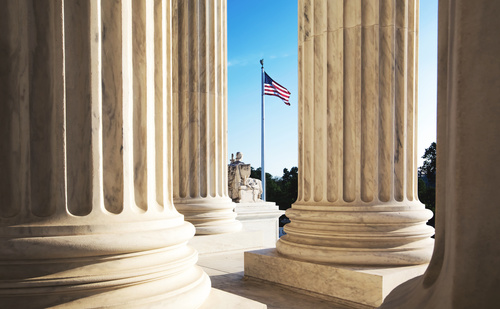The recent United States Supreme Court ruling in Janus v. AFSCME will almost certainly have far-reaching implications for public sector unions across the United States.
The decision in Janus could affect more than 7.8 million employees in 22 states who are represented by unions and currently required to pay for the costs of negotiating salaries and other workplace benefits to unions. It also has been predicted to dramatically reduce public sector union membership numbers in states without “right to work” laws.
The Supreme Court ruled 5-4 on June 27 that it is unconstitutional for public sector employees to be required to pay union fees, regardless of their membership status, overturning the Supreme Court’s 1977 ruling in Abood v. Detroit Board of Education that public sector employees can be compelled to pay agency fees.
Under the Taft–Hartley Act of 1947, union security agreements have been allowed by state law, and the Abood court found the burden on the First Amendment rights of nonunion members outweighed the need to promote labor peace and prevent “free riders.” The fees, however, could only be used to cover nonunion members’ share of collective bargaining costs, not for a union’s political purposes such as lobbying efforts. This is now no longer good law.
Citing a “significant impingement” on First Amendment rights, Justice Samuel Alito, writing for the majority, said that the requirement of employees to “provide financial support for a union that ‘takes many positions during collective bargaining that have powerful political and civic consequences’” violates the First Amendment guarantee of freedom of speech.
In states without “right to work” laws, such as New York, Maryland and California, nonmembers in union-represented workplaces have been required to pay fees that support their union’s efforts at such things as collective bargaining whether they want to or not. Not so anymore.
Despite the limitations, unions have long been associated with supporting liberal policies and Democratic candidates. “Developments since Abood was handed down have shed new light on the issue of agency fees, and no reliance interests on the part of public-sector unions are sufficient to justify the perpetuation of the free speech violations that Abood has countenanced for the past 41 years,” wrote Alito, considered a conservative voice on the bench.
Justice Elena Kagan, who wrote the dissenting opinion, countered that Abood “is embedded in the law . . . in a way not many decisions are. Over four decades, this Court has cited Abood favorably many times, and has affirmed and applied its central distinction between the costs of collective bargaining (which the government can charge to all employees) and those of political activities (which it cannot).” Justices Ruth Bader Ginsburg, Stephen Breyer and Sonia Sotomayor joined Kagan’s dissent. Sotomayor also wrote an additional dissent.
In New York, immediately following the ruling, Governor Andrew Cuomo issued an executive order prohibiting state entities from disclosing personal contact information for state employees amid reports of individuals and organizations obtaining personal information of public employees through Freedom of Information requests and using the data to launch campaigns against unions.
Proponents say the Janus ruling is a win for state and local government employees who have long-been required to support unions regardless of whether the employees agree with their unions’ political positions. Opponents say there was no basis for overturning Abood and that the ruling could be devastating for public employee unions. Only time will tell the long-term impact of the Court’s decision.
Federal employees will not be directly affected by the decision.
Contact a labor and employment attorney for more information about the ruling or to answer questions about the impact of the ruling on public sector employees.
David Fallon is a Senior Associate in Tully Rinckey PLLC’s Albany, New York office, where he focuses his practice on employment advice and litigation.







